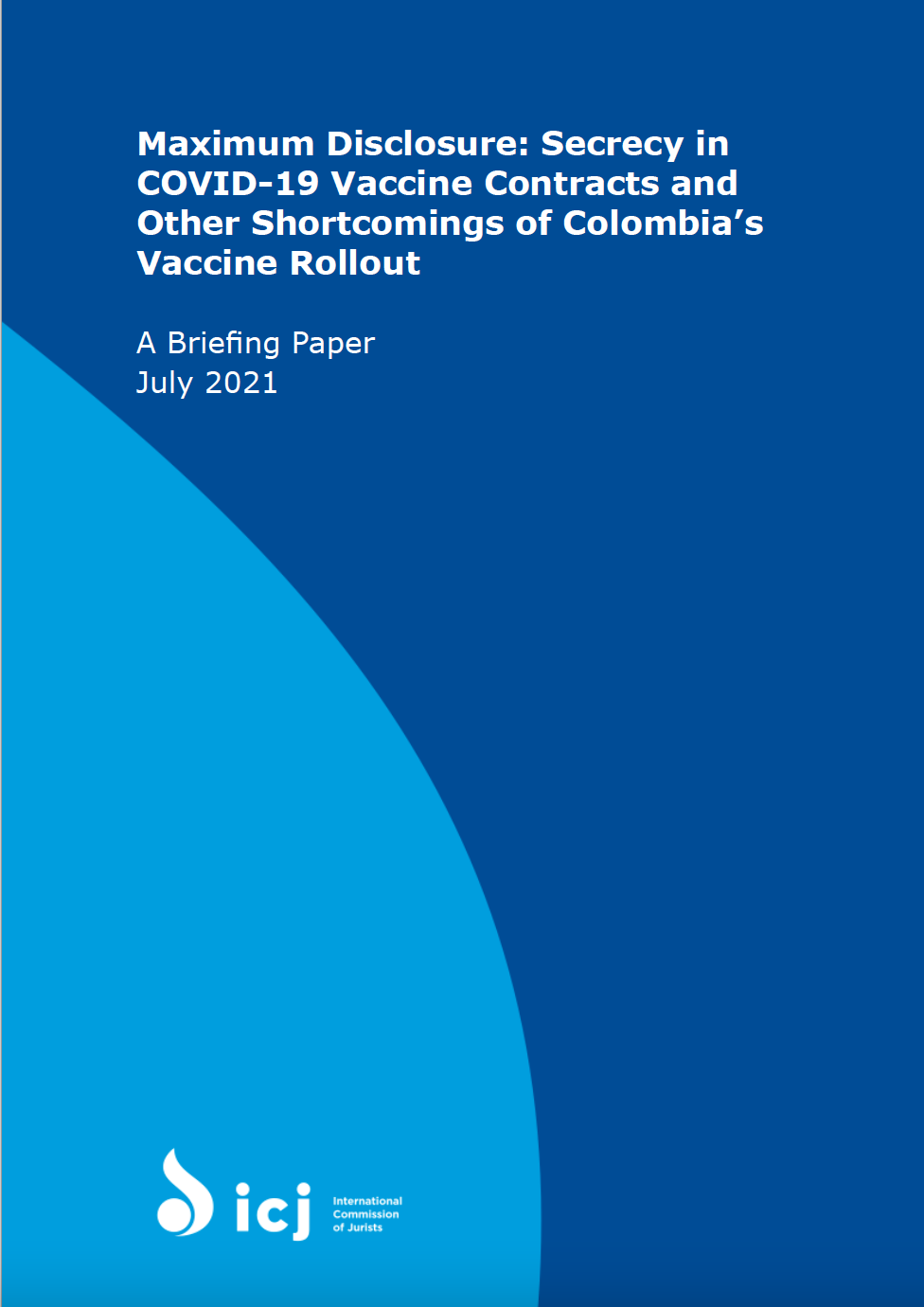Today, the ICJ published a briefing paper on non-citizens’ limited vaccine access and the authorities’ failure to disclose Colombia’s COVID-19 contracts with pharmaceutical companies, two of the main human rights challenges inhibiting human rights protection in the country’s vaccine acquisition and rollout plan.
On 11 May 2021, the Administrative Tribunal of Cundinamarca ordered the Colombian Government to disclose to the general public its COVID-19 vaccine procurement contracts with pharmaceutical companies. In addition, the Tribunal ordered the Government to hand over information on working meetings or other communications with pharmaceutical companies pertaining to its procurement of COVID-19 vaccines.
Today, along its briefing paper, the ICJ publishes an English summary of this ground-breaking decision, which could act as a catalyst for similar litigation vindicating human rights across the world. A Transparency International report published in May 2021 revealed that, out of 182 agreements for the purchase of 12 different COVID-19 vaccines, only a mere six per cent of such contracts has been published through formal channels, with only one having been published unredacted.
“Globally, despite the lip service paid to COVID-19 vaccines as a public good and a human right, almost all countries have signed non-disclosure agreements with pharmaceutical companies that prevent them from publicising such contracts. This is often in violation of domestic procurement laws and right to information legislation, but also more generally constitutes a violations of States’ obligations in terms of the rights to freedom of expression and freedom of information. In the context of the COVID-19 pandemic, the States’ failure to disclose vaccine procurement contracts also violates the right to health by limiting access to vital health-related information needed by all people to hold governments accountable for the provision of COVID-19 vaccines”, said Tim Fish Hodgson, ICJ’s Legal Adviser. “With this context, the pathbreaking decision of the Colombian Tribunal sets an important precedent in favour of ‘maximum disclosure’ that should be followed”, added Hodgson.
In addition to summarizing and analyzing the importance of the Tribunal’s decision, the briefing paper also investigates some shortcomings of Colombia’s own vaccine rollout. They include: the limited access to COVID-19 vaccines for non-citizens in Colombia, in particular, for Venezuelan migrants and refugees in the country despite a recent decision of the Inter-American Court of Human Rights that held that the rights to equality and non-discrimination impose a duty on States to provide access to COVID-19 vaccines to migrants, without any distinction based on their migratory status.
“The Colombian government must increase its efforts to ensure the provision of equitable access to COVID-19 vaccination for all non-citizens regardless of migration status in compliance with Colombia’s international human rights obligations and with the country’s own Constitution. None of us will be safe until we are all safe”, said Rocío Quintero, ICJ Legal Adviser.
Links:
Summary of Colombian Ruling on the Public Release of COVID-19 Vaccine Contracts
For more information:
Tim Fish Hodgson, ICJ Legal Adviser on Economic, Social and Cultural Rights, e: timothy.hodgson@icj.org
Rocío Quintero M., ICJ Legal Adviser, Latin America, e: rocio.quintero(a)icj.org

